Choosing website builders can be frustrating.
It’s not as simple as looking at the pricing and deciding which looks best. As a business owner, you need to consider many factors. What are the features, design capabilities, integrations with other software, support, and more?
With this in mind, we’ve hand-picked the best website builders on the market and will show you how to choose the right one for your needs.
Before we start, how do you choose a good website builder?
How to Choose a Website Builder
Website builders make it easy for you to build your own website with minimal effort and no manual coding skills. As a result, you can create a professionally designed website without hiring a developer or web designer.
Before picking a website builder, it’s a good idea to think about what you want to do with your website. What features would you like, and what are your long-term website goals?
Your basic plan might include having a:
- Blog section
- eCommerce store
- Photo gallery
- Appointment booking
- Contact form
- Social media buttons
- Live chat
For inspiration, you can always look at what your competitors are doing and jot down some ideas.
Many website builders include drag and drop functionality to help you build your business website. To get a feel for how they work, you can use their free trials or money-back guarantees before deciding.
After, you need to think about the growth of your website. Will you be adding extra features as your audience grows, or will you add more products to your store in the future?
Any website builder you choose must be able to handle your needs as a growing business.
When choosing the best website builder, you should keep the following things in mind:
- Easy to use – Any solution you choose should be easy for complete beginners to use. It should come with a drag and drop website builder, flexible customization options, and easy editing tools.
- Essential features – You’ll want your website builder to have plenty of website templates and the ability to add 3rd-party marketing tools, email integration, and Google Analytics, etc.
- Customer support – Besides an easy-to-use builder, you’ll want access to 24/7 customer support, should you face any issues.
- Data ownership – Pay particular attention to your terms of service to ensure you own your data, and if you need to switch platforms, it’s easy to migrate.
- Value for money – Look at the features each website builder offers and see if they’re worth the price. Do they provide a free domain, SSL, free business email? If not, how much would you need to spend to add those features?
After considering the criteria above, you can make an informed decision on the best website builder for your brand.
Best Website Builders for Small Businesses
Now that you know how to choose one let’s look at the best website builders for your small business site.
1. WordPress.org
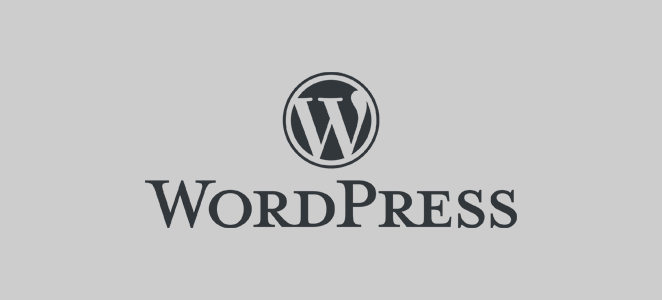
WordPress.org, or as it’s more commonly known, self-hosted WordPress, is the most popular website building platform globally. It powers over 39% of all websites on the internet and offers tons of flexibility.
Not only is WordPress free and open-source, but it’s also powerful, easy to use, and offers plenty of scope to scale your website. Plus, you’ll have complete control and ownership of your content.
Unlike other popular website builders, you’ll need WordPress hosting to use WordPress.org and host your website.
Pros:
As mentioned above, WordPress gives you complete control over every part of your website. You can use it to build any type of website, such as:
- eCommerce stores
- Membership websites
- Online forums
- Social media networks
- Personal blogs
- Landing pages
- And more
There are thousands of free and premium WordPress themes for designing your website. It also has a variety of versatile drag and drop page builders like SeedProd, Divi, and Beaver Builder. This allows you to create stunning landing pages with a drag and drop editor.
Besides a massive library of themes, there are thousands of free WordPress plugins available. With plugins, you can enhance your site’s functionality and make it more feature-rich.
For instance, you can use plugins to add shopping carts, Google Analytics, photo galleries, contact forms, and more.
Another great thing about WordPress is that it comes with various SEO tools to help your website rank better. Plus, you can easily translate it into multiple languages and use it to create multilingual websites.
Because of these powerful features, WordPress.org is the best website builder and content management system for bloggers, small businesses, and any other website.
Cons:
One of the drawbacks of WordPress.org is you’ll need to manage your own website. Making yourself familiar with a new website system has a learning curve, yet this is easy to overcome with time and practice.
Another pitfall is you’ll need to create backups and update your website yourself.
Pricing:
WordPress is a free website builder. That being said, you’ll need to purchase your own website hosting and domain name. This will typically cost around $14.99 per year for your domain name and $7.99 per month for hosting.
2. Constant Contact Website Builder
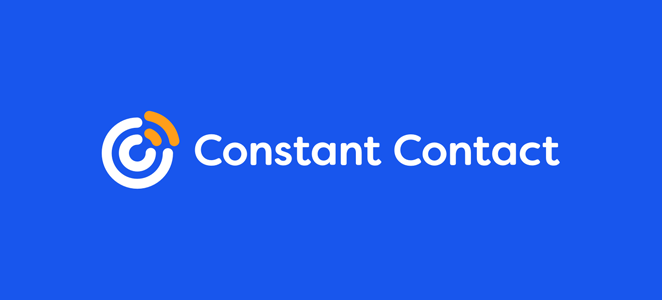
Constant Contact’s website builder is an A.I. powered builder that lets you build a powerful website in just a few minutes. Small business owners will love this solution, as it doesn’t require any technical expertise to create a professional-looking website.
Pros:
Constant Contact’s intelligent design wizard helps you create a custom website design with completely personalized content and image suggestions. You can then customize your design with its drag and drop website builder.
Plus, with thousands of free high-quality images available, it’s easy to get your site looking the way you want.
The website template layouts are all mobile-friendly, making your site look great on any device, right out of the box. You can also use their logo maker, lead capture forms, eCommerce features, and more, to extend your site’s functionality.
Since this is a hosted website builder, your hosting, updates, and backups, etc., are all handled for you. And if at any time you need help, you can contact their 24/7 live phone and chat support.
Cons:
There are currently no 3rd-party addons that you can use to add new features, aside from those offered by Constant Contact. Plus, to connect a custom domain, you’ll need to upgrade to their paid plan.
This is actually worthwhile, as upgrading provides many more tools and integrations to help make your site more successful and increase your online presence.
Pricing:
Constant Contact offers a free plan for its powerful website builder, which lets you add unlimited web pages with no extra cost.
To make your site live and get a domain name, you’ll need the paid plan, which starts at $10 per month.
3. Wix

Wix.com is a popular cloud-based website builder. It lets you create a website easily with its beginner-friendly interface and plenty of powerful features.
Pros:
Wix’s website creator is a fully hosted solution, so everything is handled for you, and you won’t need to pay for hosting. There’s a wide variety of website templates to use for your website design. Plus, every template is easy to edit with their drag and drop website builder.
This website solution comes with a variety of free and paid apps to extend your site’s functionality. Some are made by Wix, while 3rd-party developers create others.
Wix’s website builder comes with a free plan with limited storage and bandwidth. Despite that, you can use it to test drive the features to see if it’s the best fit for you. Should you decide to keep your website after, you’ll need to upgrade to the premium plan for a domain name and SSL.
Cons:
The Free and Connect Wix plans show branded advertisements on your website. To remove them, you’ll need to upgrade to the Combo or Unlimited plan.
What’s more, should you ever wish to move your website away from Wix, the process is quite complicated.
Pricing:
Wix’s free plan comes with a Wix branded subdomain. Connecting a custom domain name costs $9.16 per month. The Combo plan starts at $14 per month and includes a free domain name and SSL certificate.
4. Gator by HostGator
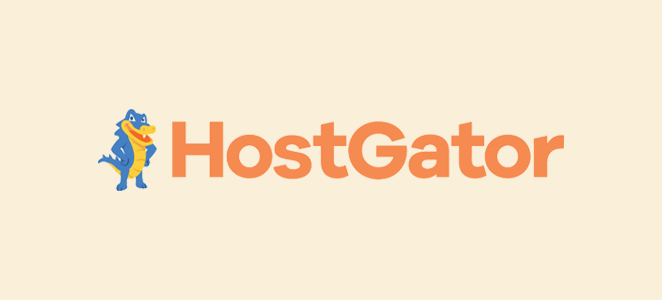
Gator is a website builder by popular web host, HostGator, one of the world’s largest website hosting services. It’s an all-in-one website solution, which is incredibly useful for small businesses.
Pros:
Gator’s website builder is fully hosted, so you won’t need to worry about hosting, backups, and updates.
The easy-to-use website builder includes over 200+ website design templates. And each layout design has easy customization options you can access right inside the builder.
Gator’s point-and-click interface lets you edit any item on your website. You can also drag and drop different popular page elements, such as images, contact forms, videos, text, columns, and more.
All of Gator’s paid plans come with a free custom domain name and the option to set up an online store. What’s more, they won’t show any ads or sell your data.
Cons:
Gator doesn’t currently offer a paid plan or a free trial. You also can’t hire a developer to modify your website design or build new features.
Pricing:
The pricing for gator starts at $3.84 per month, then scales up with more features.
5. Domain.com Website Builder
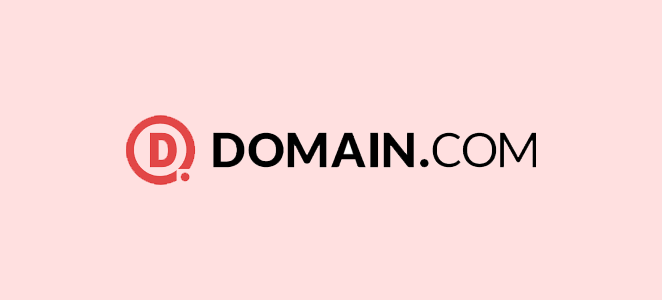
Domain.com is a smart and easy website builder that allows you to create any type of website. With just a few clicks, you can make a blog, small business website, and an eCommerce site.
Pros:
Domain.com has an easy-to-use drag and drop website builder, which makes getting started super-quick. It includes hundreds of professional website templates, all of which you can customize in the drag and drop page editor.
The templates are all mobile responsive, so they’ll look great on mobile phones, tablets, desktops, and laptops. You can also access powerful website features like website analytics, blogging, eCommerce functionality, and a free SSL certificate.
With their eCommerce plan, you manage your store’s inventory, tax, coupons, and much more. They also offer phone and live chat support should you need any help getting started.
Cons:
Domain.com doesn’t offer a free website builder option or a free trial. That said, they do have a money-back guarantee if you’re not happy with their platform.
Their starter plan is currently limited to only 6 website pages. For more web pages, you’ll need to upgrade to their business plan.
Pricing:
Domain.com’s website builder pricing starts at $1.99 per month for their starter plan and $6.99 per month for the business plan.
6. BigCommerce

BigCommerce is the best eCommerce website builder for online stores. It comes with everything you need to create a successful eCommerce store built right into its powerful platform.
Pros:
Since BigCommerce is fully hosted, you won’t have to worry about security, website backups, and updates. All of the technical stuff is handled for you, so you can focus on growing your business.
BigCommerce includes native WordPress integration. As such, you can take advantage of the powerful features both platforms have to offer. And no matter how much traffic your website gets, it will remain fast and secure.
You can integrate your BigCommerce website with various payment gateways, including:
- Stripe for credit cards
- PayPal
- Apple Pay
- Square
- Amazon Pay
- Visa Checkout
- And many more
Unlike Shopify, BigCommerce won’t charge a transaction fee to use payment gateways.
It’s easy to start your website with pre-made website templates, which you can then customize in the drag and drop builder. Plus, there are tons of features to optimize your store, such as cart abandonment, product search, product reviews, and more.
If you need any extra features, you can connect with 3rd-party apps via their app store.
Cons:
If this is your first ever website, BigComemrce’s pricing may be higher than you’re willing to pay. Migrating away from BigCommerce is also tricky since it’s a proprietary platform.
Pricing:
BigCommerce plans start at $29.95 per month with all the essential features. It also has a 15-day free trial for all plans.
7. Shopify
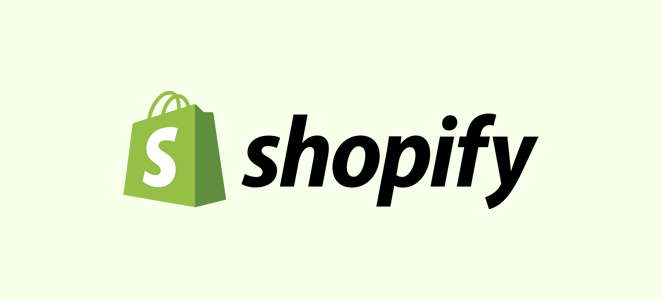
Shopify is another eCommerce website builder for online stores. More than half a million businesses are powered by Shopify, selling over 40 billion dollars worth of products.
Pros:
Shopify is fully-hosted, so you won’t need to manage any software, keeping backups, or updates. Instead, Shopify handles everything for you.
You can use Shopify’s integrated payments system called Shopify Payments to accept credit card payments. Plus, it’s possible to add 3rd-party payment gateways.
Since Shopify is an eCommerce website builder, it offers full inventory management, unlimited products, store statistics, and marketing solutions in 1 single package. They also have hundreds of online store templates that require no coding to set up.
Shopify’s drag and drop interface makes it easy to build a fully-fledged online store. You can also integrate it with WordPress to use both platforms simultaneously.
Cons:
The pricing plans for Shopify are costly if you’re just starting. And if you decide to move away from Shopify in the future, the process is quite tricky.
Pricing:
The basic plan for Shopify starts at $29 per month. You can also use the Lite plan, which adds a “Buy Now” button to any website, starting from $9 per month.
8. WordPress.com
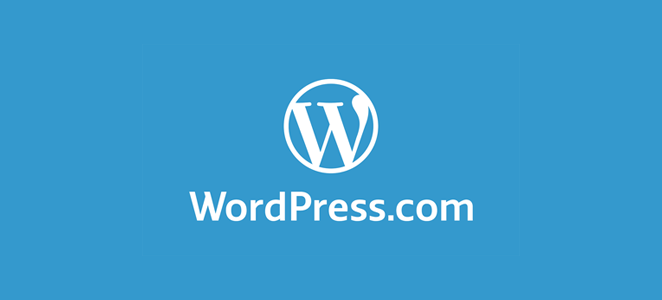
WordPress.com is a blogging and website hosting service from Automattic. It was created by Matt Mullenweg, the co-founder of the WordPress.org open-source software.
That said, WordPress.com and isn’t the same as WordPress.org. For more details, check out this comparison of WordPress.com vs WordPress.org.
Pros:
WordPress.com is a website hosting solution built on the same WordPress software but offers a different user-experience to WordPress.org. Since WordPress.com takes care of everything, you won’t need to worry about updates or backups.
While the free and paid plans have different features, they all allow you to choose from thousands of free WordPress themes. Then you can use the live customizer to edit your site, add widgets, navigation menus, and more.
Although it doesn’t include the same drag and drop functionality as other website builders, it allows you to easily customize your website’s main elements. It also has powerful editing tools that are super-helpful for bloggers.
Cons:
With WordPress.com, you can’t install custom plugins or themes without upgrading to the business plan. Plus, premium plans and below don’t have access to eCommerce features.
Another pitfall of WordPress.com is you don’t own your content, so it can be taken down any time if you breach their terms and conditions.
Pricing:
The free basic plan is very limited in terms of functionality. Personal plans start from $4 per month, billed annually, and come with a custom domain.
9. Weebly
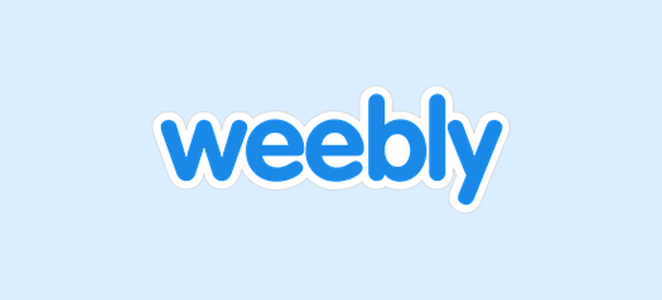
Weebly is another easy website builder with a variety of excellent website designs and plenty of functionality. Plus, it includes a user-friendly page builder to edit your website without needing to code.
Pros:
Weebly is a hosted website solution. As such, you don’t need to worry about backups and updates. Instead, Weebly takes care of hosting your website and the software running in the back end.
You can choose from dozens of beautiful website designs as a starting point for your site. Then, you can customize them in the live page editor.
As well as an easy interface, Weebly has built-in eCommerce support. As such, you can create an online store quickly and easily.
Every Weebly website has the functionality to add contact forms, sliders, photo galleries, and a whole lot more.
Cons:
Since Weebly.com is a hosted website solution, you’re locked into using the features they offer. It also charges a 3% transaction fee on any purchases on your eCommerce store. To avoid these fees, you’ll need to upgrade to a paid plan.
Pricing:
Weebly has a simple free plan you can use to try the platform. Paid plans start from $8 per month, billed annually.
10. Squarespace
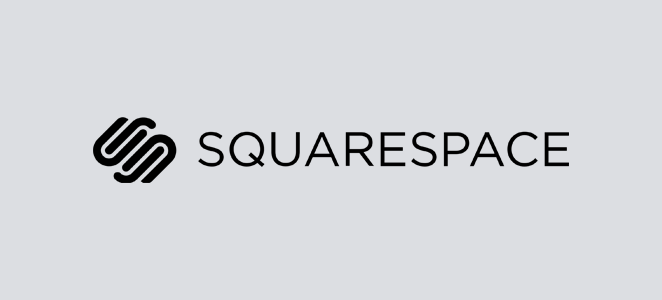
Squarespace is another popular website builder that’s well known for its stunning designs and easy to use interface.
Pros:
Like many builders on this list, Squarespace comes with enterprise-level infrastructure to host your website. As such, you can grow your website as much as you like, without worrying about hosting.
You can choose from a variety of professionally designed website layouts to get started quickly. Each design is fully customizable in Squarespace’s visual editor and won’t need manual coding. You can even use more than one template for the same site simultaneously.
Adding content is as easy as clicking anywhere on your page and typing. You can also drag and drop various elements onto your page to create your own layouts.
With Squarespace’s eCommerce plan, you can also turn your website into an online store. You can then use their interface to manage your products, inventory, orders, and more.
Cons:
One hurdle to growing your business with Squarespace is it doesn’t offer many integrations with 3rd-party services. Their eCommerce plans are also limited to Stripe, Apple Pay, and PayPal for processing payments.
Pricing:
The pricing for Squarespace starts from $12 per month, while online stores start from $26 per month.
11. DreamHost Website Builder
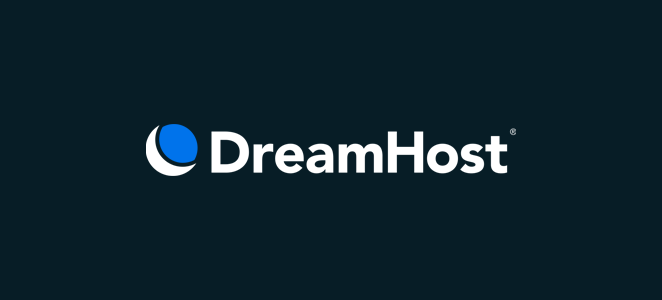
DreamHost’s website builder is built on top of the WordPress platform, allowing you to create websites easily for your small business. You can use it with all of their hosting plans, and it includes a free custom domain name.
Pros:
As mentioned above, DreamHost’s WP builder is built right on top of WordPress. This allows you to take advantage of WordPress’s powerful features along with a custom user interface.
You can choose from a range of professional website designs and customize them in the drag and drop customizer. It’s also easy to change colors, layouts, fonts, and menus by pointing and clicking.
If you want to test your website before making it live, you can use DreamHost’s staging site with a single click. You can also use the WYSIWYG page editor to remove the guesswork from editing your content.
Since DreamHosts’s WP builder is built with WordPress, you can create any type of website for your business. It’s also easy to add extra functionality, SEO and social media features, WooCommerce, and more.
Cons:
DreamHost’s website builder uses self-hosted WordPress.org, so you’ll need WordPress hosting. Plus, DreamHost doesn’t have a free plan, but they do have a 97-day money-back guarantee.
Pricing:
DreamHost’s website builder comes with all DreamHost plans from as low as $2.59 per month for a single website.
12. GoDaddy Website Builder
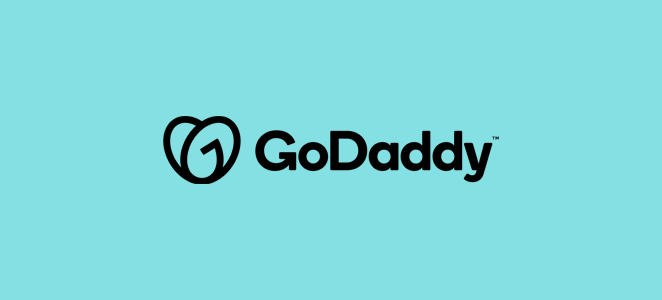
GoDaddy is one of the biggest website hosting companies and domain name providers around. They also offer a simple online website builder complete with website hosting.
Pros:
GoDaddy’s simple and easy website builder lets you create professional-looking websites in no time at all. The site builder’s interface automatically comes with blocks you can drag and drop onto your page to create various layouts.
You can also use the built-in photo library to add stunning photos to your website. Or, if you like, you can upload your own to create image galleries.
This website builder works seamlessly across devices, making your website look stunning on mobile devices.
Cons:
GoDaddy’s website builder isn’t as feature-rich as other solutions on this list. It’s also not as flexible as other website builders. Plus, should you wish to migrate from GoDaddy to another website solution, the process isn’t entirely straightforward.
Pricing:
GoDaddy’s website builder plans start from $5.99 per month.
Which Online Website Builder is the Best?
After looking at all the website builders on this list, we’ve decided that WordPress.org is the best website builder for small businesses. It outperforms all other website building solutions, is easy to use, and has the most flexibility.
WordPress.org is a fantastic choice for both beginners and more experienced users to create any website without writing a single line of code.
We hope this article helped you find the best website builder for your business.
You might also like this comparison of the best business phone systems to use with your website.
If you found this article useful, follow us on Facebook and Twitter for more helpful tips and tutorials.
The post 12 Best Website Builders 2021 Compared (+ How to Pick One) appeared first on SeedProd.